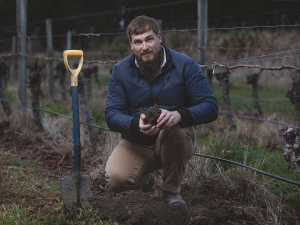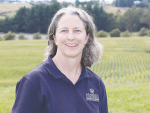Scientific testing around the anecdotal claims of regenerative agriculture is “urgently required”, according to a new report.
Lead author Dr Gwen Grelet, Senior Researcher at Manaaki Whenua – Landcare Research, says regenerative agriculture potentially has an important role to play in New Zealand. “Regenerative agriculture has huge momentum internationally in all parts of the food system. It is not a magic bullet, but its grass-roots popularity with farmers and food consumers means it has huge potential for driving the transformation of Aotearoa’s agri-food system to move our country closer to its goals.”
Gwen says the consultation found many areas of strong agreement between advocates and sceptics. “It’s time to stop bickering and focus on identifying any true benefits regenerative agriculture might have for New Zealand.”
The white paper - Regenerative Agriculture in Aotearoa New Zealand: Research Pathways to Build Science-Based Evidence and National Narratives - was produced from a research project run by Manaaki Whenua - Landcare Research and funded by the Our Land and Water National Science Challenge. It sets out 17 priority research topics identified by more than 200 representatives of New Zealand’s agri-food sector.
Michelle Barry of Bragato Research Institute (BRI) ran focus groups of winegrowers and makers, industry representatives and researchers to contribute to the paper for the wine industry. She thinks regenerative agricultural practices can help growers and farmers have a positive impact on the land. “These practices can help winegrowers improve the health of waterways, reduce topsoil loss, offer resilience to drought, and add value to primary exports including wine”, she says. “Providing evidence of the impact of claimed regenerative practices will be important to help farmers and growers make decisions that achieve positive environmental and social outcomes, while also increasing profitability at the vineyard level.”
he report makes several recommendations for regenerative agriculture research design. These include delving into whether regenerative agriculture can prevent further soil losses, and how and where soil carbon can further increase. The paper also calls for research to adopt some “common metrics to allow comparability of results”, and that research to test regenerative agriculture claims focuses on established and successful regenerative agriculture farms, as well as transition case studies.
Pernod Ricard Winemakers New Zealand Sustainability Manager Tracey Marshall says the report recognises the science, experience and community aspects of regenerative agriculture. “I think it’s timely, because there are a lot of anecdotal stories out there and a lot of people doing good work.”
Last year the wine company established an 8-hectare vineyard trial in Marlborough, to explore knowledge in regenerative techniques, trial cover crop species, build better “soil balance”, and measure the impact on vineyard health. The site is part of a 60ha vineyard ideally positioned for regenerative viticulture, sitting between one of the company’s large organic blocks and the 9ha Kaituna Wetland, which is a showcase of Pernod’s environmental initiatives.
Tracey says the first season was a significant learning opportunity, with a “global approach” that sees the Kiwi team tapping into support from Pernod Ricard’s other winegrowing regions, while collecting their own data and getting “real hands on experience”. Exploring how everything works “synergistically”, requires understanding of what’s happening in the soil and above ground, then assessing the combination of factors to quantify the benefits, says Tracey.
he white paper also looks at the enjoyment of farming, which she agrees is a key element. “I don’t think you can discount the fact that it feels good too, particularly if your soil and plants are thriving.”
Find the white paper at ourlandandwater.nz












